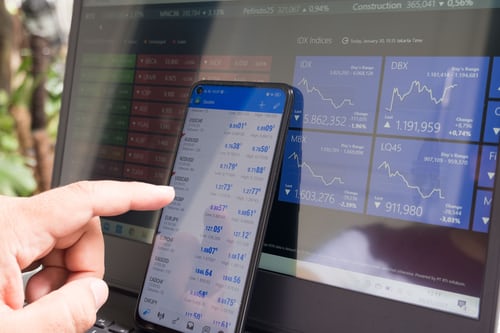Last Updated on: 22nd November 2023, 02:56 pm
Stocks and shares ISA, also known as investment ISA, is a tax-efficient account, which means investors don’t have to pay either capital taxes or earning taxes on the gains they get from their trades. While it sounds too good, there is a limit to the money traded through ISA.
Let’s start from the beginning, what does ISA stand for? ISA is the acronym for Individual Savings Account. Opening a stocks and shares ISA allows traders to invest in a variety of assets like funds, shares, trusts, and bonds. And even if ISA doesn’t necessarily mean investing without risk, it may represent an interesting option for traders looking to maximize their returns.
Who is eligible for a stocks and shares ISA account?
There are a few requirements to open this type of account, and while circumstances may change, as well as taxing legislation, traders have the option to decide if this is a savvy investment for them. Do keep in mind that for the best returns, traders should be willing to take a medium to long-term investment that is usually around 5 years.
In order to be able to open an ISA account traders must be over the age of 18 and be residents in the UK, which is necessary for tax purposes.
What can traders invest in with a stocks and shares ISA account?
There are two main options when it comes to investing through the ISA. Traders can opt for ready-made packages of funds, an option that allows them to spread their investment, and therefore reduce the risk that comes with every investment.
Ready-prepared portfolios are a good option for those with little knowledge of the companies they want to invest in, but it reduces the chances of control that more advanced traders may prefer.
The second option is to research the shares that interest you and invest in those individually. Buying shares means owning a little piece of that company, and while the stock value may rise, it may also go down. Investing in different companies, from different industries, may be a wise move to keep risk under control since while some may fail, others may do well to balance the possible loss.
The annual limit for ISA investments
The taxes regulations may change, but as of 2021-2022, the maximum investment through ISA is up to 20.000 pounds. There are different types of ISA accounts, but investors can only have one. Applying for one or another will depend on your personal circumstances and be aware that regulations may change in the future.
How to invest in stocks and shares ISA?
Investing through ISA is very similar to investing with other accounts. The gains can be either reinvested, kept in the account, or taken out in cash.
The costs of investing with a stocks and shares account will also determine if this is the right option for you. There are different fees involved in investing with ISA. On one side there is a platform fee, which gives you access to the online platform that holds all your ISA money, there is also a fund annual management fee if you’re investing in these, as well as a transaction fee for buying and selling shares. Finally, there may be a transfer out fee if you are planning on changing of provider.
Final thoughts
ISA may be an advantageous option for you as a trader. If after considering the pros and cons you still decide to go for it, do keep in mind that while the investment recommended time is 5 years, the money is still available if you need it. Attractive returns and savvy investments are the main points of this, do not forget there is always a risk, though.



